Humans
Sign up for our newsletter
We summarize the week's scientific breakthroughs every Thursday.
-
 Humans
HumansIn some languages, love and pity get rolled into the same word
By studying semantic ties among words used to describe feelings in over 2,000 languages, researchers turned up cultural differences.
-
 Anthropology
AnthropologyHomo erectus’ last known appearance dates to roughly 117,000 years ago
New evidence helps resolve a debate over how long ago Home erectus survived in what’s now Indonesia, a study finds.
By Bruce Bower -
 Science & Society
Science & SocietyThese science claims from 2019 could be big deals — if true
Some of this year’s most tantalizing scientific finds aren’t yet ready for a “best of” list.
-
 Archaeology
ArchaeologyDNA from 5,700-year-old ‘gum’ shows what one ancient woman may have looked like
From chewed birch pitch, scientists recovered DNA from an ancient woman and her mouth microbes and hazelnut and duck DNA from a meal she’d consumed.
By Sofie Bates -
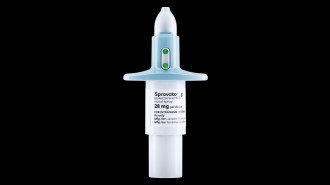 Health & Medicine
Health & MedicineIn 2019, a ketamine-based antidepressant raised hopes and concerns
Ketamine and related molecules might ease severe depression, but the drugs come with baggage.
-
 Health & Medicine
Health & MedicineVaping’s dangers loom large amid more than 50 U.S. deaths this year
Lung injuries and deaths linked to vaping in 2019 are a sobering indication of the dangers of e-cigarettes as teen use continues to rise.
-
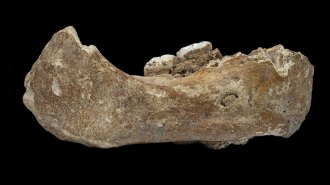 Humans
HumansMysterious Denisovans emerged from the shadows in 2019
Denisovan fossil and DNA finds this year highlighted the enigmatic hominid’s complexity and our own hybrid roots.
By Bruce Bower -
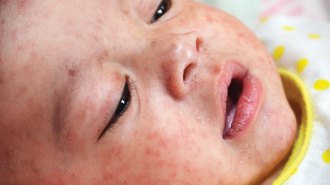 Health & Medicine
Health & MedicineMeasles got a foothold in the United States this year and almost didn’t let go
Areas of low vaccination are blamed for the United States' largest number of measles cases in more than 25 years.
-
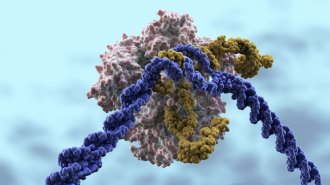 Genetics
GeneticsThe first U.S. trials in people put CRISPR to the test in 2019
Trials of the gene editor in people began in the United States this year, a first step toward fulfilling the technology’s medical promise.
-
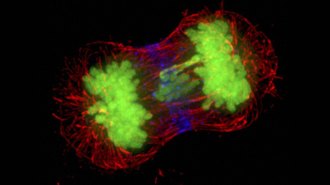 Health & Medicine
Health & MedicineSurplus chromosomes may fuel tumor growth in some cancers
Extra copies of some genes on excess chromosomes may keep cancer cells growing. Without those extras, cancer cells form fewer tumors in mice.
-
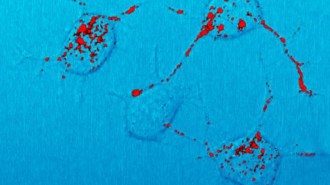 Life
LifePrions clog cell traffic in brains with neurodegenerative diseases
Prions may derail cargo moving inside brain cells, perhaps contributing to cell death in prion diseases.
-
 Archaeology
ArchaeologyA nearly 44,000-year-old hunting scene is the oldest known storytelling art
Cave art in Indonesia dating to at least 43,900 years ago is the earliest known storytelling art, and shows otherworldly human-animal hunters.
By Bruce Bower